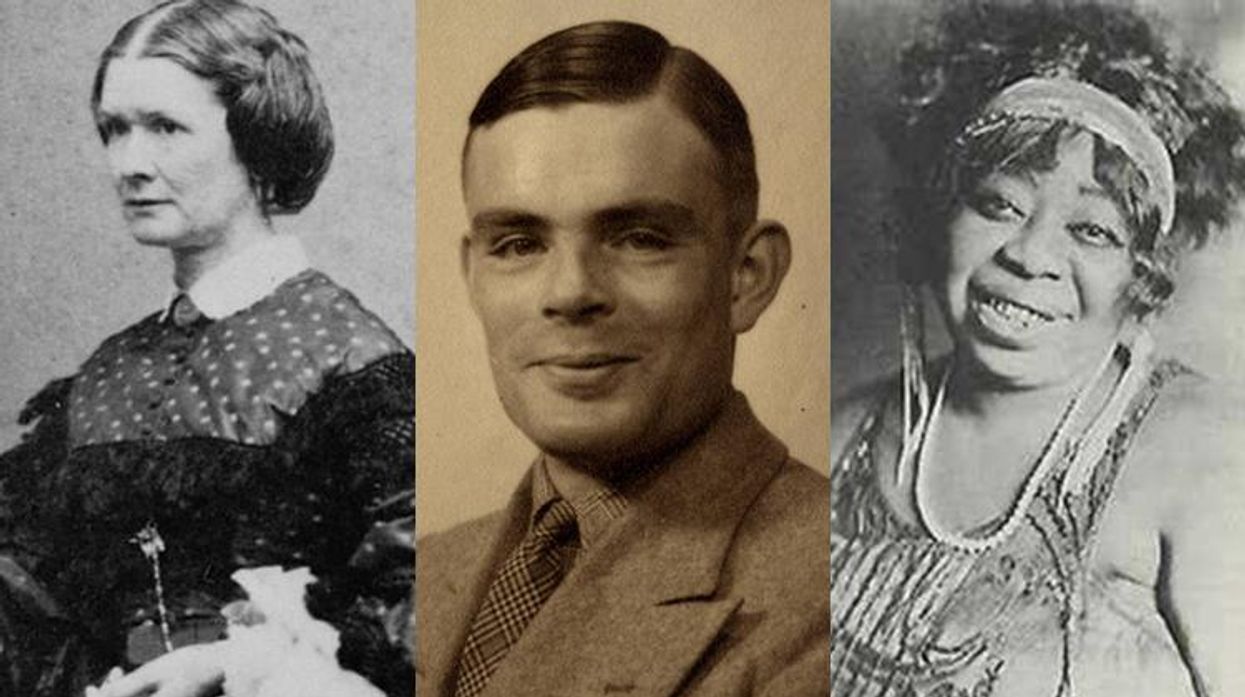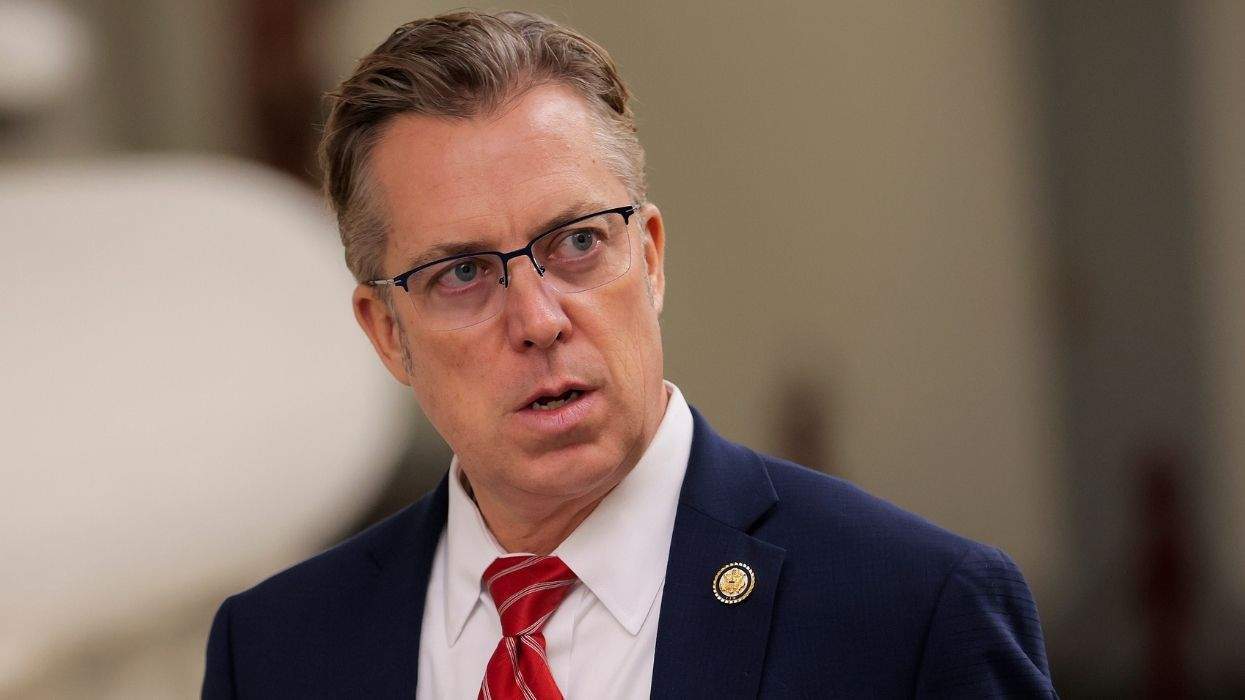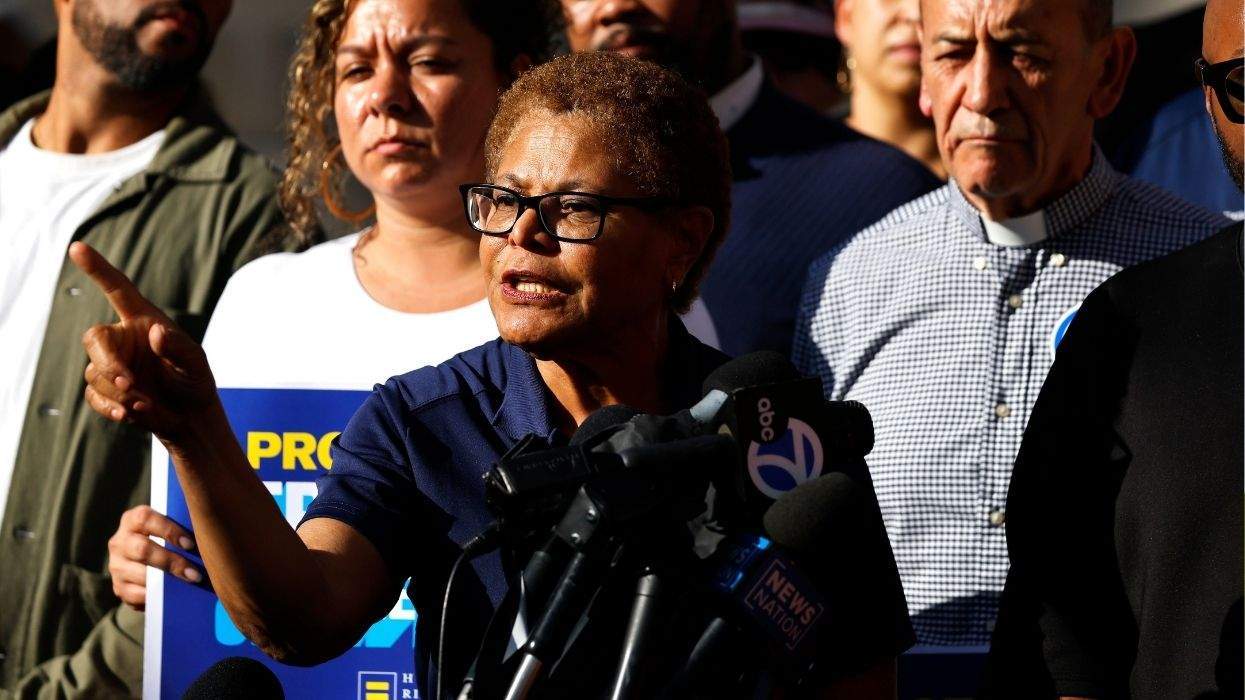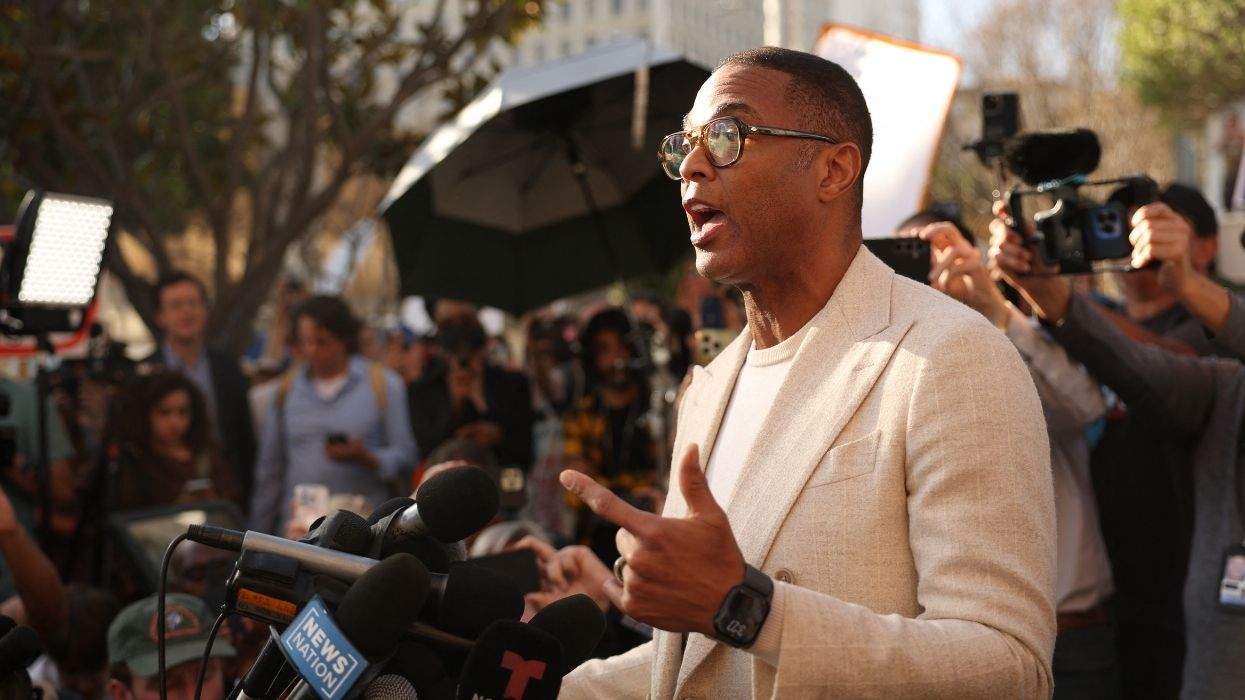Emma Stebbins was the first woman commissioned to create a major sculpture in New York City, and she crafted one of the city's most famous -- the Angel of the Waters, atop the Bethesda Fountain in Central Park. Unveiled in 1873, the sculpture has become one of the most recognizable sites in New York and has been featured in numerous movies and TV shows, including Annie Hall, Elf, Sex and the City, and the HBO miniseries of Angels in America. Stebbins was also the lover of world-famous actress Charlotte Cushman. Upon her death in 1882, however, Stebbins didn't receive an obituary in the city's paper of record, The New York Times.
Now, for Pride Month, the Times is making up for the omission of Stebbins and other notable LGBTQ people through its Overlooked feature, a series of obituaries on famous figures the paper's obit section neglected to include at the time of their passing. "They may have been left out in the past, but that's why we're doing them now," says Amy Padnani, an obit editor at the Times and creator of Overlooked.
When Padnani joined the obit staff in 2017, a time of high awareness of racial and gender inequities, she heard from many readers about the fact that most of the people the Times deemed worthy of obituaries were white men. She set out to address not only the present situation but make up for past oversights. Overlooked launched March 8, 2018, International Women's Day, with obits of 15 remarkable women, such as journalist and antilynching activist Ida B. Wells, author Sylvia Plath, and Emily Warren Roebling, who took over from her ailing husband, engineer Washington Roebling, to oversee the completion of the Brooklyn Bridge.
The Times added to the series every week, and in February of this year, for Black History Month, it did a special Overlooked section on African-Americans. It has featured some LGBTQ figures already -- gender-bending blues singer Gladys Bentley, for instance, was in the African-American section, and trans activist Marsha P. Johnson in the one on women -- but the Pride Month series is the first one focusing exclusively on LGBTQ people.
The obit on Stebbins opened the series with publication on the newspaper's website Wednesday night, and it will appear in the print edition Monday. Among other things, readers will learn about Stebbins's relationship with Cushman, whom she met in Paris in 1857. When Cushman developed breast cancer, which would eventually take her life, Stebbins gave up her own artistic career to care for her beloved.
They will also learn that Stebbins's Angel was not well-received upon its debut, with a Times reviewer saying it "resembles a servant girl executing a polka." "But over the decades, as the Angel watched over picnics, parties and wedding proposals, and appeared in movies and television shows as a silent observer of musical numbers and grand romantic moments on the park's Bethesda Terrace, she became all but synonymous with New York," Overlooked contributor Jennifer Harlan writes.
Angels in America author Tony Kushner told Harlan he didn't know the statue's background when he wrote it into the play, but it was simply his favorite place in New York. "The plaza, the setting, and the Angel herself -- it feels like the center of New York City, and the center of the universe, in a way," he said. Finding out that its creator was gay, he said, was an "auspicious moment of serendipity."
The other four people in the series, whose obits will appear in print on succeeding Mondays, include some who are fairly well-known to 21st-century readers and others whose fame has faded. One of the better-known ones is British scientist Alan Turing, who cracked the codes used by Nazi Germany's military and thereby helped the Allies win World War II. Turing, also known as the father of modern computing, underwent chemical castration in the 1950s for the "crime" of being in a gay relationship and was barred from government work. He died in 1954, apparently by suicide. He's been the subject of numerous biographies and the lauded 2014 film The Imitation Game, which saw Benedict Cumberbatch Oscar-nominated for his performance as Turing. But Padnani promises that the Times' audience will find the obit enlightening -- and reader-friendly in the paper's distinctive narrative style.
Another featured figure, bisexual blues singer Ma Rainey, is known to many through fictional portrayals, such as August Wilson's acclaimed play Ma Rainey's Black Bottom and the HBO film Bessie, in which Mo'Nique appeared as Rainey, friend and mentor to Queen Latifah's Bessie Smith (also bisexual). Apt to be less familiar to readers are transgender photographer Claude Cahun, whose work questioned gender and sexuality, and gay minister Bill Larson, one of the 32 people who died in the 1973 arson fire at the UpStairs Lounge in New Orleans, the largest mass killing of LGBTQ people in U.S. history until the shooting at Orlando's Pulse nightclub in 2016, which saw 49 lives lost.
Christina Caron, the out reporter who wrote the obit on Larson, was struck by the differences in contemporary treatment of the two tragedies. The police response to Pulse was quick, and the news coverage and public reaction largely sympathetic to the victims and survivors. The investigation into the UpStairs fire was marred by homophobia, and no one was ever charged with the arson, even though there was a likely suspect. Many churches refused to host services for the victims, news articles carried few details about them, and a radio DJ even joked about the burying their ashes in "fruit jars." A Times article shortly after the New Orleans fire quoted a man saying, "I saw Bill Larson burn to death in the window," but there was no explanation of who Larson was, and the speaker was identified only as "a man who was one of the first to jump to safety."
Larson was the well-loved pastor of the New Orleans congregation of the Metropolitan Community Church -- the denomination founded by Rev. Troy Perry as an accepting faith home for LGBTQ Christians -- that for a time held services at the UpStairs Lounge. The lounge was also a popular post-service gathering place. Larson tried to escape through a window but was trapped between its bars. His charred body remained there for hours, a ghastly image imprinted on witnesses' minds.
Caron, who is married to a woman, and Padnani, a straight woman who is the daughter of Indian immigrants, say it's crucial to tell the stories of people other than heterosexual white men. "I think it's incredibly important to have this visibility when perhaps we've failed in the past," Caron says.
Caron is also trying to up the visibility of diverse population in her work as a reporter on the Times' parenting team. One of the team's goals is improving the representation of LGBTQ families, she says; a recent story, for instance, dealt with an African-American lesbian couple's difficulty in finding a black sperm donor. "These are stories that are important to hear," she says.
Also for this year's Pride observances, coming on the 50th anniversary of the Stonewall riots, the Times is gathering coverage of LGBTQ history and culture into a special online section; find it here. The landing page for Overlooked is here, and the Stebbins obit here.















